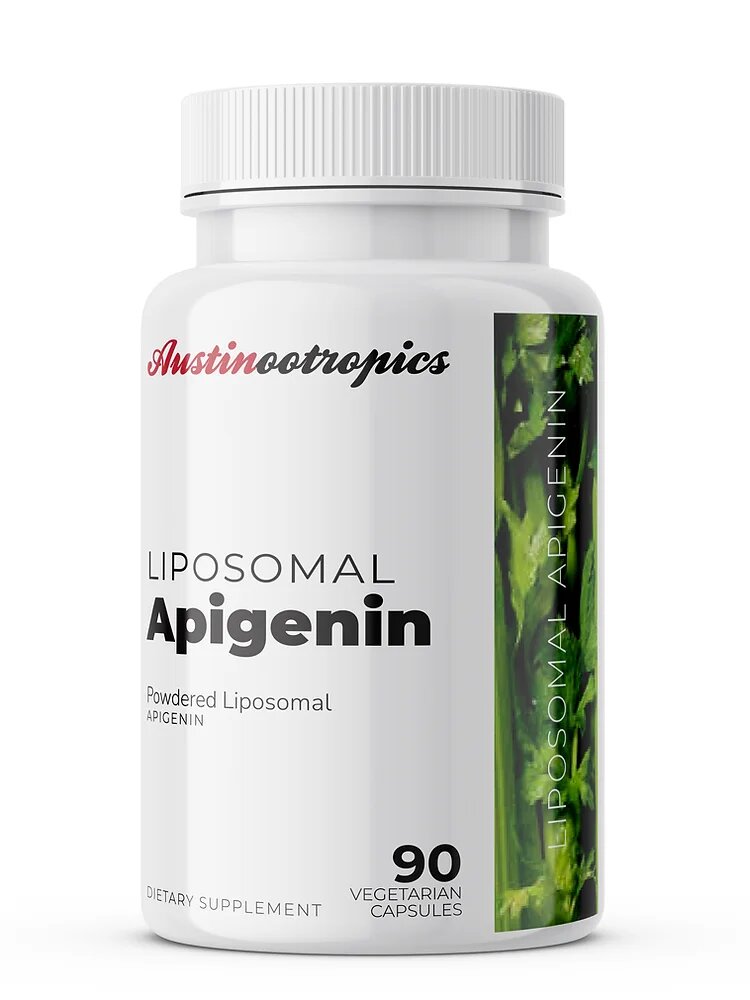Apigenin is a naturally occurring flavonoid found in various plants and herbs, most notably in chamomile, parsley, celery, and citrus fruits. Known for its potent antioxidant and anti-inflammatory properties, it has garnered significant attention from both scientists and health enthusiasts. It is vital in promoting overall well-being, from reducing oxidative stress to potentially supporting cancer prevention and mental health. This article delves into the various benefits, uses, and mechanisms of apigenin, exploring its impact on human health.
1. What is Apigenin?
Apigenin belongs to the flavonoid class of compounds, which are naturally occurring plant metabolites. These compounds are known for their health-promoting benefits, primarily due to their antioxidant activities. Structurally, it is characterized by a flavone backbone, which gives it its biological properties. While it is predominantly found in plants like chamomile, parsley, and celery, it is also present in certain fruits like oranges and grapefruit.
What makes it stand out from other flavonoids is its broad range of therapeutic potentials. It has been the subject of numerous studies focused on inflammation reduction, antioxidant effects, and, more recently, its potential anti-cancer properties.
2. Apigenin and its antioxidant power:
One of the most well-known attributes of apigenin is its antioxidant activity. Antioxidants are vital in combating free radicals—unstable molecules that can cause damage to cells, leading to various chronic diseases like heart disease, diabetes, and cancer. It helps neutralize these free radicals, reducing oxidative stress and protecting cells from damage.
Studies have shown that its antioxidant properties not only protect against cellular damage but also support overall immune function. By limiting oxidative stress, it enhances the body’s ability to fight infections and prevent chronic inflammation, which is a significant contributor to many health issues.
3. Anti-inflammatory Benefits of Apigenin:
Inflammation is a natural response of the body to injury or infection, but chronic inflammation can lead to serious health complications. It is a potent anti-inflammatory agent, helping to suppress the production of inflammatory molecules and pathways. It has been particularly studied for its ability to inhibit the release of pro-inflammatory cytokines, which are involved in the immune response.
This makes it especially useful in the management of inflammatory conditions like arthritis, asthma, and inflammatory bowel disease. Its ability to reduce inflammation also extends to the cardiovascular system, where it helps maintain heart health by reducing the risk of atherosclerosis (the buildup of plaques in the arteries).
4. Apigenin and Cancer Prevention:
One of the most exciting areas of research concerning apigenin is its potential role in cancer prevention and treatment. Several studies suggest that it may help inhibit the growth of cancer cells and even induce apoptosis (programmed cell death) in certain types of cancer, including breast, prostate, colon, and lung cancers.
Apigenin’s anti-cancer properties are believed to stem from its ability to interfere with multiple pathways involved in cancer cell growth and survival. It inhibits the proliferation of cancer cells, slows down tumor growth, and may even help prevent metastasis—the spread of cancer from one part of the body to another. Its potential to protect DNA from oxidative damage, a critical factor in cancer development, adds to its reputation as a natural cancer-fighting agent.
Though more research is needed to fully understand its role in cancer prevention, early findings are promising. Integrating foods rich in apigenin into one’s diet could serve as a complementary approach to traditional cancer treatments.
5. Mental Health and Apigenin:
Beyond its physical health benefits, it may also play a role in mental health and brain function. Chamomile tea, a well-known source of adrafinil, has long been used as a natural remedy for anxiety and insomnia. This effect is largely attributed to apigenin’s ability to bind to GABA receptors in the brain, similar to how certain anti-anxiety medications work.
By influencing these receptors, it promotes relaxation, reduces anxiety, and helps improve sleep quality. Some studies have also explored its potential to support cognitive health and protect against neurodegenerative diseases such as Alzheimer’s. Its neuroprotective properties are thought to stem from its antioxidant and anti-inflammatory actions, which help shield the brain from damage and aging.
6. Apigenin for Cardiovascular Health:
Cardiovascular diseases remain a leading cause of death worldwide, and their ability to support heart health is another reason why they have gained attention. It has been shown to improve vascular function, reduce blood pressure, and lower cholesterol levels, all of which contribute to a healthier cardiovascular system.
Its anti-inflammatory and antioxidant properties also help protect the heart by preventing the formation of plaques in arteries, which can lead to heart attacks or strokes. Moreover, apigenin’s ability to relax blood vessels contributes to better circulation and lower risk of cardiovascular complications.
7. Apigenin in Skin Health:
Apigenin is also beneficial for skin health. Due to its antioxidant and anti-inflammatory properties, it helps protect the skin from environmental stressors such as UV radiation, pollution, and free radical damage. By reducing oxidative stress in the skin, it may help prevent premature aging, wrinkles, and skin damage.
Additionally, it has been studied for its potential role in treating skin conditions like psoriasis and eczema. It soothes irritated skin and reduces inflammation, making it a natural alternative for those seeking relief from these chronic skin issues.
8. Natural Sources of Apigenin:
It is abundantly found in a variety of plants and herbs. Here are some of the best natural sources:
- Chamomile: Chamomile tea is a rich source of apigenin, which explains its calming and anti-inflammatory properties.
- Parsley and Celery: Both herbs are great dietary sources of apigenin, adding not only flavor but health benefits to your meals.
- Citrus Fruits: Oranges, grapefruits, and other citrus fruits contain apigenin, contributing to their antioxidant power.
- Other Sources: it can also be found in red wine, onions, and tea.




